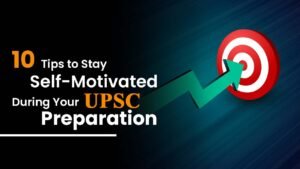Choosing a career path right after completing the 12th or intermediate examination is a critical decision that can shape your future. For those aspiring to pursue a career in civil services, joining IAS coaching in Delhi is often considered a viable option. Delhi, being the hub of coaching institutes for IAS preparation, offers a plethora of opportunities and resources for aspiring candidates. However, it is crucial to weigh the pros and cons before making a decision. In this article, we will delve into a comprehensive analysis of joining IAS coaching in Delhi after 12th, exploring its advantages and disadvantages, and providing insights to help you make an informed choice.
Advantages of Joining IAS Coaching in Delhi After 12th
Early Start:
- Joining IAS coaching after 12th allows you to begin your preparation journey at an early stage, providing more time to cover the vast syllabus and develop a comprehensive understanding of the subjects.
- Starting early gives you an advantage in terms of longer preparation duration, enabling you to build a strong foundation and grasp complex concepts.
Systematic Approach:
- IAS coaching institutes in Delhi offer structured study material, comprehensive test series, and experienced faculty members who guide you through the entire syllabus in a systematic manner.
- The coaching institutes provide a well-defined roadmap, study schedules, and personalized guidance, helping you streamline your preparation and focus on the essential topics.
Exposure to Peer Group:
- Joining IAS coaching in Delhi after 12th allows you to be a part of a competitive peer group comprising like-minded individuals who share similar aspirations.
- Interacting with peers who are equally motivated and dedicated creates a healthy competitive environment, fostering intellectual growth and providing opportunities for knowledge sharing.
Expert Guidance:
- IAS coaching institutes in Delhi have experienced faculty members who specialize in various subjects and are well-versed with the exam pattern, syllabus, and recent trends.
- The guidance provided by these experts helps you understand the nuances of the examination, gain insights into effective study techniques, and develop strategies for time management and answer writing.
Access to Resources:
- Delhi, being the coaching capital of India, provides access to a wide range of study materials, reference books, online resources, and libraries dedicated to UPSC preparation.
- The availability of abundant resources ensures that you have access to quality study material, current affairs updates, and previous years’ question papers, which are essential for comprehensive preparation.
Disadvantages of Joining IAS Coaching in Delhi After 12th
Limited Maturity and Life Experience:
- Joining IAS coaching immediately after 12th may mean that you have limited exposure to real-world experiences and a lack of maturity compared to candidates who have completed graduation.
- Civil services demand a deep understanding of society, governance, and administration, which is often enriched by life experiences and perspectives gained during graduation.
Academic Pressure:
- The intensity of IAS coaching, coupled with the pressure of board examinations and simultaneous preparation, can be overwhelming for some students.
- Juggling between the coaching curriculum and academic syllabus may lead to stress and compromised performance in either domain.
Limited Subject Understanding:
- Joining IAS coaching immediately after 12th may restrict your understanding of subjects to a superficial level, as the coaching focuses on providing an overview rather than in-depth knowledge.
- Comprehensive understanding of subjects like History, Economics, and Polity often requires a multidimensional approach, which may be difficult to achieve without
Lack of Diversified Skill Set:
- Pursuing a graduation degree before joining IAS coaching allows you to develop a diversified skill set, including critical thinking, research abilities, and communication skills, which are crucial for the civil services examination.
- Without a broader academic background, you may face challenges in comprehending complex issues and articulating your thoughts effectively, especially in the essay and interview stages of the examination.
Financial Considerations:
- Joining IAS coaching in Delhi can be financially demanding, with coaching fees, accommodation costs, and other living expenses adding up.
- Without a stable source of income, financial constraints may arise, potentially adding stress to the preparation process and limiting your access to resources or study materials.
Factors to Consider for Making an Informed Decision
Self-Assessment:
- Reflect on your strengths, weaknesses, and learning preferences to determine if joining IAS coaching immediately after 12th aligns with your individual needs and goals.
- Consider your ability to handle the academic pressure, motivation levels, and personal circumstances before making a decision.
Future Plans:
- Evaluate your long-term goals and aspirations beyond the civil services examination. Assess whether pursuing a graduation degree aligns with your career objectives and provides a holistic educational experience.
Financial Stability:
- Consider your financial situation and whether you have the means to bear the expenses associated with joining IAS coaching in Delhi.
- Explore scholarships, financial aid options, or part-time work opportunities to alleviate financial burdens, if necessary.
Mentors and Guidance:
- Seek advice from mentors, teachers, and professionals in the field to gain insights into the benefits and drawbacks of joining IAS coaching after 12th.
- Engage in conversations with individuals who have pursued different paths and understand their perspectives on the impact of graduation on civil services preparation.
Alternative Paths for IAS Preparation
Graduation as a Foundation:
- Opting for a graduation degree, preferably in subjects aligned with the UPSC syllabus such as History, Political Science, Economics, or Public Administration, provides a comprehensive understanding of the subjects and develops critical analytical skills.
- During graduation, candidates can engage in self-study, participate in extracurricular activities, and take up internships to gain practical knowledge and develop a well-rounded personality.
Self-Study and Online Resources:
- Utilize online platforms, websites, and e-learning resources to access UPSC-specific study materials, mock tests, current affairs updates, and video lectures.
- Self-study allows for flexibility, self-paced learning, and the opportunity to delve into subjects at a comfortable pace.
Local Coaching Institutes:
- Consider enrolling in coaching institutes in your local area, which may offer quality guidance and resources at a comparatively lower cost.
- Local coaching institutes can provide mentorship and support while allowing you to stay connected with family and maintain a familiar environment.
Making the decision to join IAS coaching in Delhi immediately after 12th or opting for graduation before pursuing civil services preparation is a crucial choice that depends on individual circumstances and preferences. While joining coaching after 12th offers an early start, systematic approach, and access to expert guidance and resources, it may have limitations in terms of maturity, subject understanding, and diversified skill set.
On the other hand, pursuing graduation before IAS preparation allows for a broader academic foundation, deeper subject knowledge, and the development of critical skills required for the civil services examination. However, it may delay the start of your preparation and require additional financial considerations.
To make an informed decision, it is essential to conduct a self-assessment, consider your long-term goals, evaluate financial stability, and seek guidance from mentors and professionals in the field. Additionally, exploring alternative paths, such as self-study with online resources or joining local coaching institutes, can provide viable options for IAS preparation.
Ultimately, the key lies in finding the approach that aligns with your strengths, goals, and circumstances. Both paths have their advantages and challenges. It is crucial to stay focused, committed, and dedicated to your preparation, regardless of the path you choose. With perseverance, hard work, and a strategic study plan, you can achieve success in the highly competitive field of civil services.
Remember, success in the civil services examination is not solely determined by the path you choose but by your determination, consistent effort, and a deep understanding of the subjects. Stay motivated, continuously update your knowledge, and strive for personal growth throughout your journey. Good luck in your pursuit of a career in the civil services!




